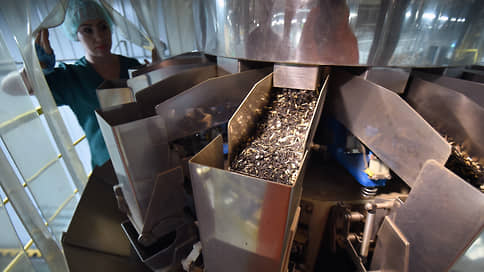Beseda tea will return to the market
[ad_1]

The United Tea Company, which bought out the capacities of the former Unilever tea factory, among whose co-owners the ex-head of Luzhniki Alexander Pronin, also acquired the Beseda brand, which was part of the Unilever portfolio. The company will relaunch the brand that appeared in the late 1990s in the middle price segment. The assortment of tea on the Russian market has decreased over the year, but the concentration of producers is high, so it will be difficult for Beseda to reach the previous sales volumes, experts say.
The fact that the United Tea Company (OCC) became the owner of the trademarks associated with the Beseda brand is stated in the Rospatent database. This brand appeared on the Russian market in the late 1990s and, along with Lipton and Brooke Bond, was part of the portfolio of the Unilever concern. In 2021, Unilever sold the tea business, merged into Ekaterra, to CVC Capital Partners. In the summer of 2022, Ekaterra announced its withdrawal from Russia, and this year, the company’s capacity in St. Petersburg, where up to 16,000 tons of tea was produced per year, was acquired by OCHK.
The general director and co-owner of the United Tea Company, Alexander Konov, clarified to Kommersant that the Beseda brand was part of the deal. According to him, the company plans to restart the brand in the middle price segment at the federal level, production has already begun in St. Petersburg this week, and products will appear in retail chains in September. At the first stage, black tea in bags will be produced under the brand, then the assortment will expand, Mr. Konov adds. In Ekaterra (this year it changed its name to Lipton Teas and Infusions), “Kommersant” did not answer.
Prior to the transaction, the portfolio of the United Tea Company included the brands Eastford, Berryford, Kama Sutra, Green Standard. The company is also engaged in packaging products under the contract, including under the networks’ own trademarks. According to the Unified State Register of Legal Entities, Alexander Konov owns 50%, 25% each from Alexander and Larisa Pronin. Mr. Pronin, the ex-general director of the Luzhniki sports complex, was the first vice president of AvtoVAZ and was mentioned in the media as an adviser to the head of Rostec, Sergei Chemezov. Mr. Konov also heads the Pyotr Konchalovsky Foundation, created by directors Nikita Mikhalkov and Andrei Konchalovsky.
The release of “Conversations” ceased in the 2010s, recalls the interlocutor of “Kommersant” in the market. Alexey Popovichev, executive director of Rusbrand, notes that Beseda was more of a low-price brand in Unilever’s portfolio, and the new owner will probably try to fill a niche with this brand, where Lipton was present. According to the expert, there should not be any difficulties with changing the positioning, but the relaunch of the brand will require investments in advertising. Although the owner of the Kaufman brand agency, Stanislav Kaufman, warns that bringing a previously well-known brand to a different price segment will require additional communication with consumers and can be a daunting task.
Ramaz Chanturia, General Director of the Roschaikofe Association, says that as long as the Beseda brand remains recognizable, the new owner of the brand can expect to take a certain market share, but it will be difficult to reach the previous volumes. As Mr. Chanturia notes, the tea market is very competitive, but it is also highly concentrated: the five most popular brands account for about 75% of sales. Complicating the situation for producers is also the growth in the cost of tea in the context of the devaluation of the ruble and the rise in the cost of raw materials (see Kommersant of August 9). Representatives of Mai (Maisky, Lisma, Curtis), Orimi (Greenfield, Tess) and Ahmad Tea Kommersant did not respond.
The hot drinks market has suffered from a reduction in the range, analysts at NielsenIQ say. According to their estimates, for the year (until May 2023), the number of commodity items (SKU) with non-zero sales in the tea market decreased by approximately 12.4%, to 9.36 thousand units. Of all the SKUs, 2.9% form 80% of the tea turnover in money terms, the company calculated. For the year to May 2023, tea sales declined 5.8% in volume and grew 8.7% in value year-on-year, according to NielsenIQ. In the total cash sales of hot drinks, tea occupies 35.2%, instant and natural coffee – 48.5% and 14%, respectively, cocoa – 2.3%.
[ad_2]
Source link





